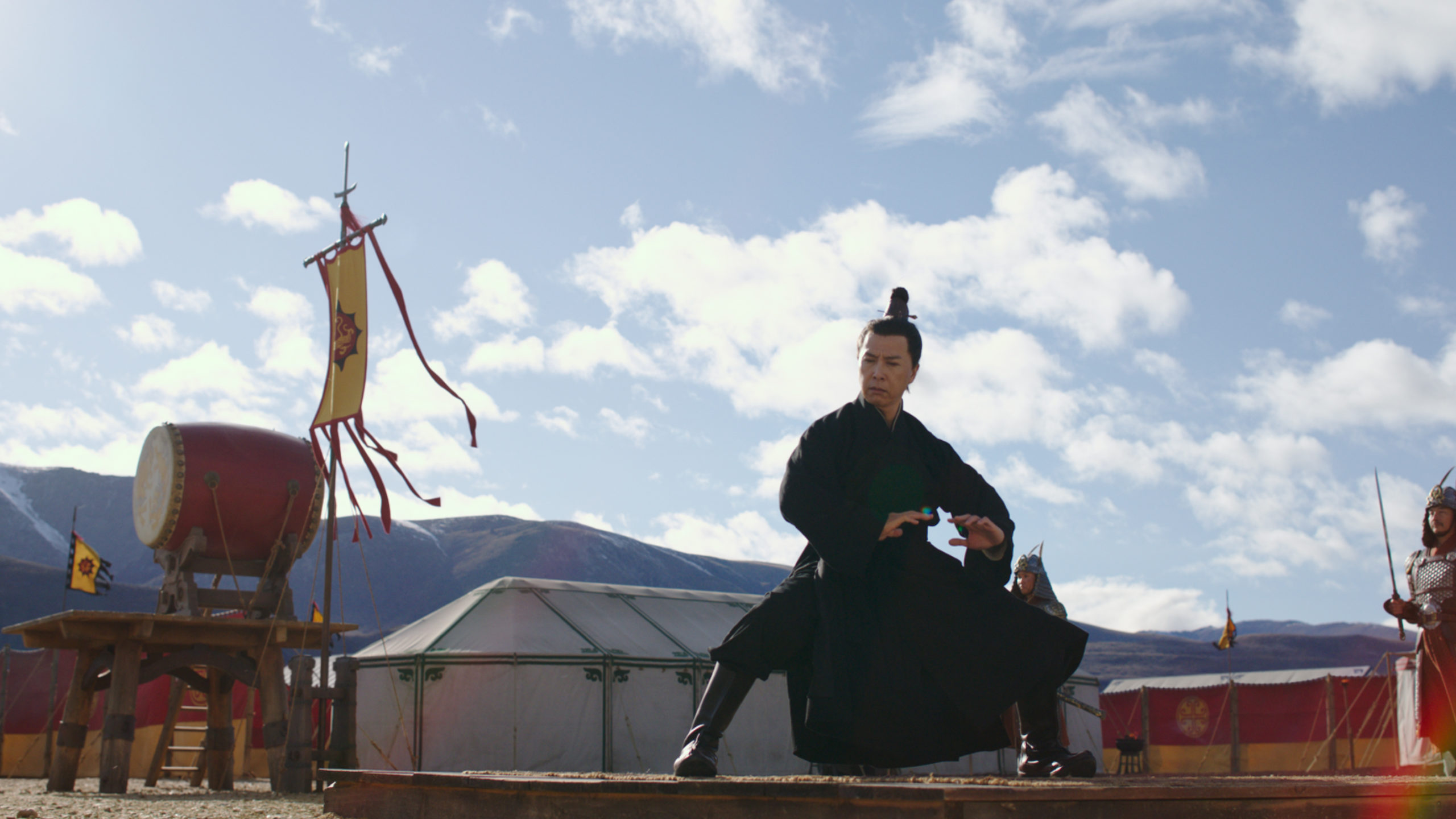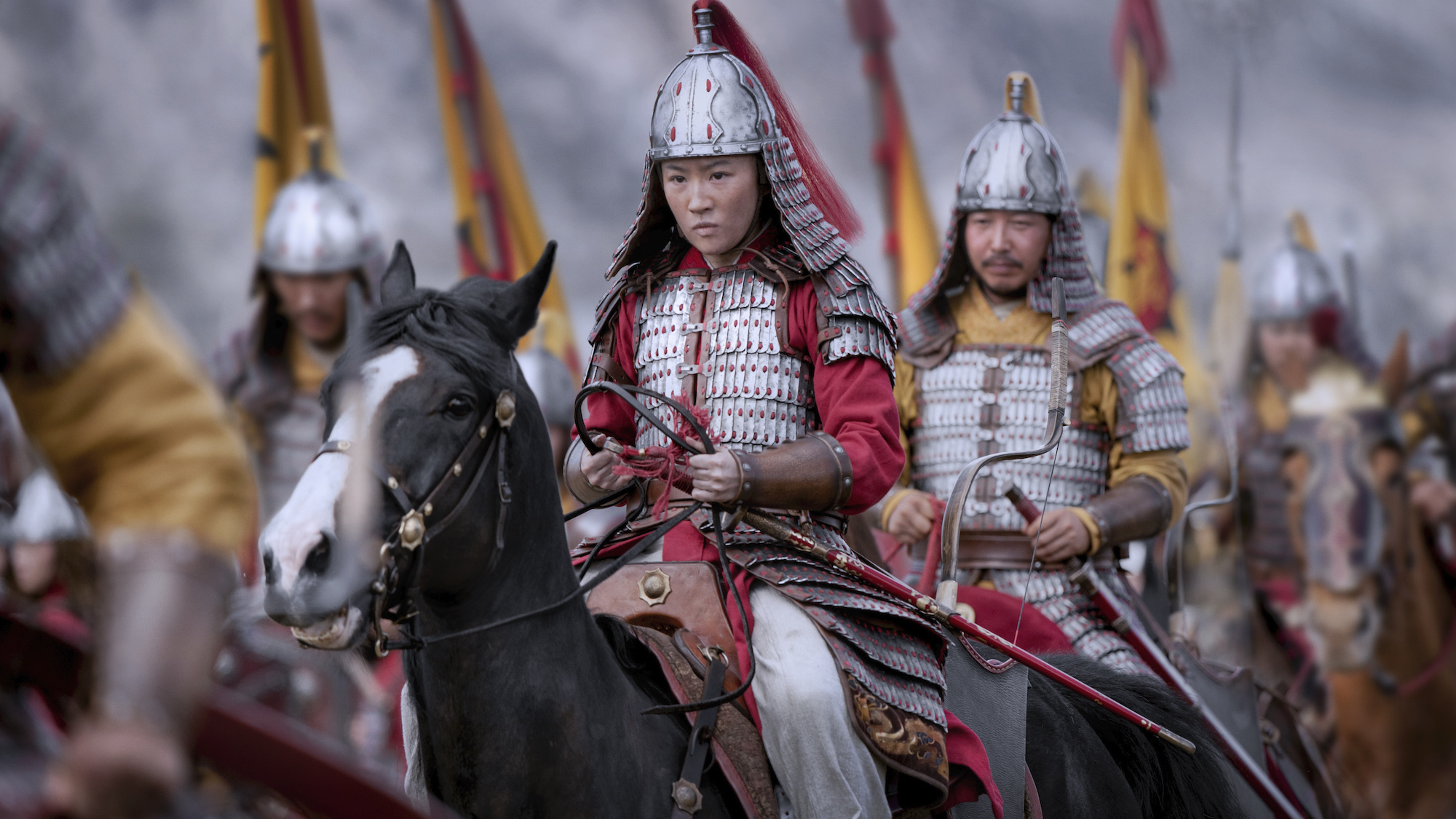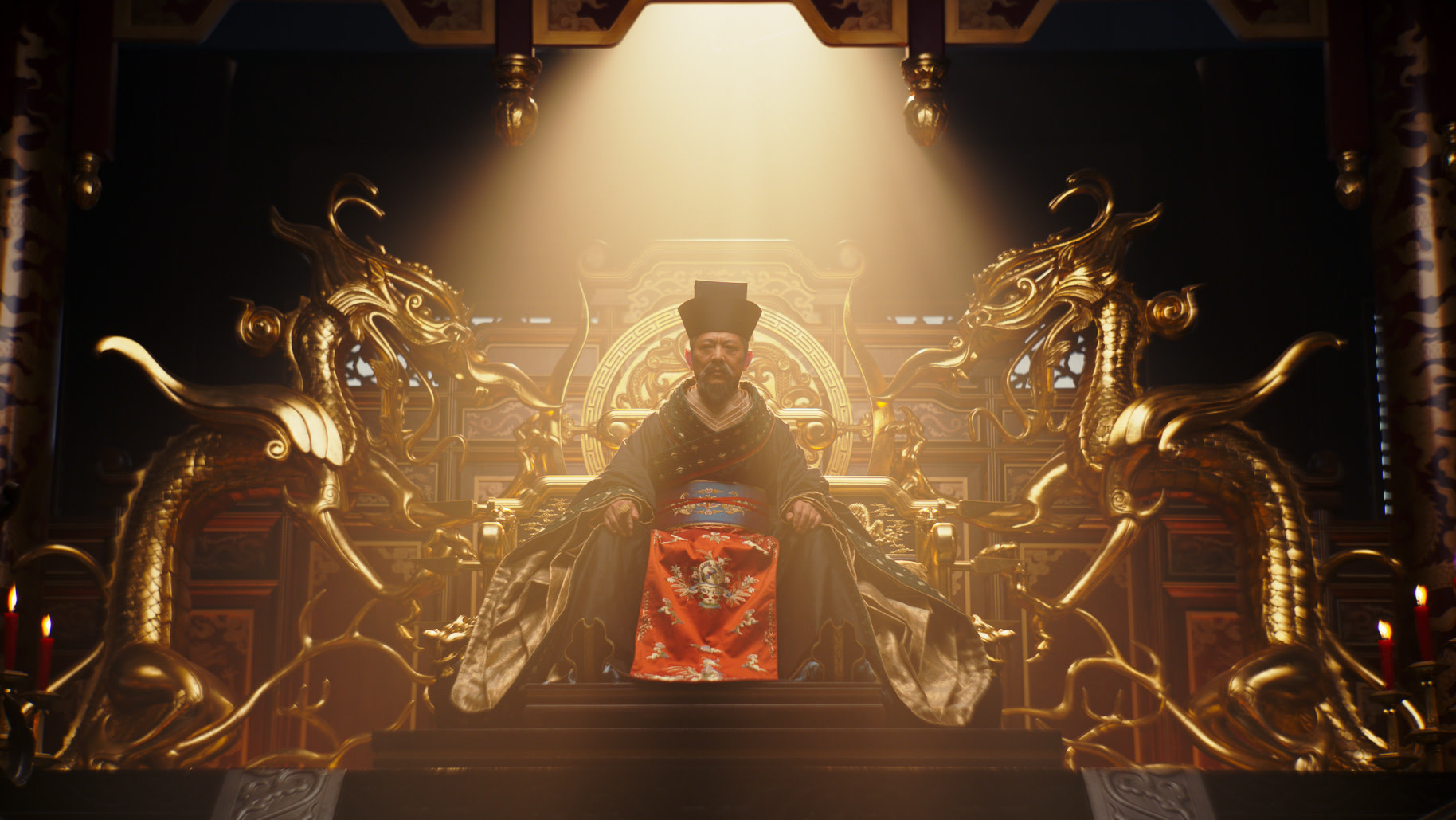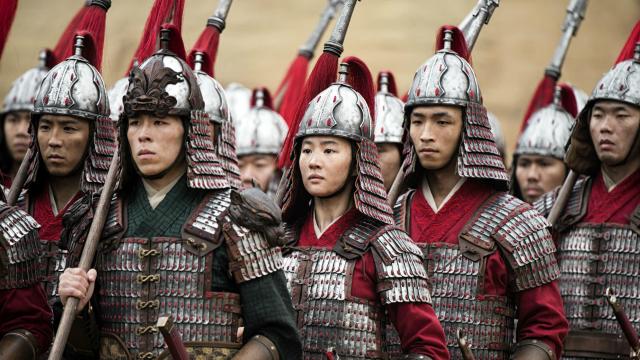Mulan is an epic martial arts film that knocks previous remakes of beloved Disney animated classics off their magic carpets. And it does so by daring to be different. While The Lion King (2019) reboot was nearly a frame-by-frame copy of its predecessor, Mulan deviates significantly from the 1998 animated film. Without musical numbers or Mushu the talking dragon, Mulan is more serious in tone. Think dramatic action rather than saccharine merriment.
Mulan is a coming-of-age story about a Chinese girl who overcomes personal and societal obstacles to embrace her inner warrior. Based on The Ballad of Mulan, the film follows the story of Hua Mulan (played by Liu Yifei), who pretends to be a man to take the place of her ageing battle-wounded father in the Imperial Army. Even though the film has cut out several beloved elements from 1998’s Mulan, it contains enough references to please fans of its animated predecessor. In place of light-hearted musical numbers, the film inserts sweeping instrumental versions of the original soundtrack to tug at heartstrings. Lyrics from “I’ll Make a Man Out of You” are sprinkled throughout the dialogue at the training camp. Without the levity of songs and creature sidekicks, Hua Mulan’s fellow soldiers — played by Yosan An, Doua Moua, Chen Tang, Jimmy Wong, and Jun Yu — provide welcome comic relief and comradery.

Though it lacks silly humour, Mulan makes up for it through thrilling fight scenes that unfold as part of Hua Mulan’s story. The more she embraces who she is, the more powerful a fighter she becomes. Liu shines in her action scenes with a graceful physicality. And she is joined by some genuine legends: the always-impressive Donnie Yen and Jet Li. Every time Yen appears, all eyes are drawn to his mesmerising martial arts demonstrations, and I cheered as Li, who plays the Emperor, dropped a couple of displays with gravitas.
Mulan has always stood out among Disney “princess” movies. While other reboots have focused primarily on romantic stories (Cinderella, Beauty and the Beast, even Aladdin), Mulan’s story centres on a young Chinese woman’s warrior journey. Li Shang, Mulan’s original love interest and audience favourite from the original animated film, is replaced by Chen Honghui, a fellow soldier played charmingly by breakout star Yoson An. Though the romance is understated, the looks exchanged between Chen Honghui and Hua Mulan are electric. Chen Honghui is ultimately a loyal ally who supports Hua Mulan in her hero’s journey, helping her grow into a leader of men. This is a rare storyline in Disney films. But for director Niki Caro, this is not the first film she made about a young girl who goes on to become a leader — her film Whale Rider (2002) followed a similar trajectory.
With a female director at the helm, Mulan is more socially relevant than your average family film. The heroine battles both physical villains and societal constraints. Bori Khan remains the film’s villain, portrayed dynamically by a scarred and long-maned Jason Scott Lee, who manages to complicate an otherwise one-dimensional bad guy. But the real enemy is sexism — Hua Mulan encounters multiple layers of it from her family, her village, and the military. Not just limited to her experience, the live-action Mulan critiques how women are treated by society by adding a new female character in Xian Lang, a formidable yet vulnerable sorceress portrayed by the talented Gong Li. She instills awe and fear every time she appears on screen. By drawing parallels between Hua Mulan and Xian Lang, both of whom are scorned for their extraordinary talents, the film manages to demonstrate the wide reach of societal sexism. This is a fresh, contemporary update to the original film even if it’s not set in modern times.

While the portrayals of sexism are refreshing in Mulan, the patriarchal family and village structures feel dated. Asian cultures and families too often get portrayed as backwards and misogynistic in Hollywood. I cringed at a scene of villagers scoffing at young Hua Mulan’s incredible martial arts skills. From what I’ve seen in Chinese martial arts cinema, if someone is extremely talented — no matter their gender — they are revered. At least the film characterises Hua Mulan’s father as an ambivalent enforcer of patriarchy. Played compellingly by Tzi Ma, Hua Zhou starts off proud of his daughter’s skills but later succumbs to societal pressures by telling her to repress them. Like Hua Mulan, he has to learn to embrace his true self: a feminist father who takes pride in his daughter as a warrior.
As far as the movie’s central performance goes, Liu Yifei’s fight scenes are gorgeous to watch, but in most scenes, she appears restrained — sometimes overly so — when it comes to emoting. Right before a heavily made-up Hua Mulan visits a matchmaker, she says to her sister, with a single blank look, “This is my sad face, this is my curious face, and now I’m confused.” That essentially describes the actor’s countenance for much of the film, even after her character comes into her full warrior self. Liu said in an interview, “the hardest thing about Mulan to me is…[to] put yourself in that circumstance and then to have it be organic, not like ‘acting’-acting.” This is an artistic choice that Liu makes. Her tone and expressions remain understated throughout the film. It is up to the audience to judge whether Liu, in an effort to avoid overacting, ventures too far in the other direction.

Off-screen, Liu has been anything but restrained. In August 2019, she posted a comment on Weibo (to her 65 million followers) supporting Hong Kong’s police at the height of state-sanctioned violence against pro-democracy protesters. Liu received criticism for supporting police brutality, especially from a position of privilege (she is a naturalized U.S. citizen). Since then, the hashtag #BoycottMulan has been trending on social media. Disney has largely treated this as a non-issue, likely due to China’s potential box office dollars. China has approved the film for a theatrical release but there is no official date as of yet. In a time of a global pandemic and mounting U.S.-China tensions, it is unknown whether Chinese audiences will flock to theatres.
Considering Mulan’s gravity-defying fight sequences and breathtaking landscapes of tranquil mountains and otherworldly geothermal valleys, in a perfect world, you’d appreciate seeing Caro’s film on the big screen. But we’re not in a perfect world, and the novel coronavirus has pulled this Disney title away from theatres (with good reason!) and into our homes. Is it worth forking out a whopping $35 (Disney+ Premier Access price) to stream Mulan on your television where, depending on its size, all of this epic cinematography may be lost in transmission?
Out of all the live-action remakes of Disney animated classics thus far, Mulan is simply the best. Fans of the original animated film will shed tears of nostalgia. Younger kids, depending on their tolerance for violence, will find the action sequences exciting though some may disengage without the funny creatures or songs. Even with its flaws, the film elevates the Disney “princess” film with rousing martial arts, female empowerment, and cultural relevance — making it a worthy watch.
